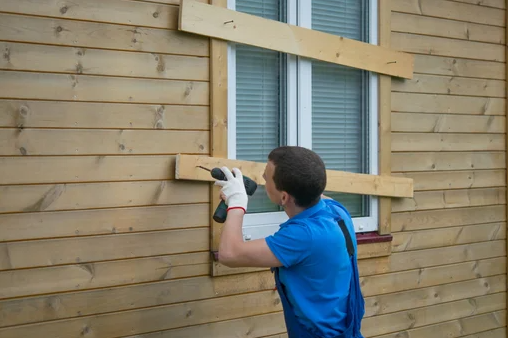2022 Hurricane Season: What you need to know to protect your business and home
May 27, 2022
By John Holpuch
Like last year, the 2022 hurricane season promises to be eventful, with above-normal tropical activity. AccuWeather predicts up to eight hurricanes and 20 named storms this season. Of those, four to six will directly impact the Eastern seaboard.[1] Prepare now to minimize weather-related risks to your business or home.
For businesses, that includes creating a business continuity plan ahead of time to keep your employees safe and informed and to ensure operations resume as soon as possible.
Offices should create a backup plan that includes how to restore resources that are lost to the storm. Have people in place to get items repaired or replaced. Think about customers, communication, work space, computers and resources. If you’re a manufacturer, plan for ways to find manufacturing capacity, and inventory from other businesses like yours.
6 best practices for hurricane preparedness
Don’t wait until a storm is baring down to secure your property, do it now. Here are six items to knock off your checklist before a storm hits.
Perform roof inspections. You are more likely to have water damage if your roof is breached. Proper roof maintenance involves fixing loose elements such as roofing and flashing; securing chimneys, HVAC and other rooftop equipment; and cleaning your gutters and down-spots so water can easily drain off the roof. These safety measures should be part of your year-round maintenance; don’t leave it for storm season.
Trim your trees. High winds and damaged trees are a dangerous mix. Any dead, dying or diseased tree limbs can separate and cause impact damage when blown at high speeds. Get an arborist to make your trees storm-ready. It’s dangerous work, so leave it to the professional. Even healthy trees close to your property can cause damage, so get them checked as well.
Inspect and repair your storm shutters. Shutters installation should be a quick and seamless process. Ensure that all shutter elements properly function, can lock and are well-maintained. At the beginning of the season, check for any damage and repair it. In addition, make sure all fittings and locks work well, and that you have all the parts to properly secure them in place.
Place, service and run your electrical generator before you need it. Nothing is worse than having a generator that you can’t start. While it’s calm, secure your generator outside in a safe and well-ventilated spot. Get it serviced, obtain fuel and practice starting it before a storm hits.
Make sure your garage doors are safe. The larger the door, the greater the chance of it caving in during a storm. Hurricane-rated doors offer the best protection, but if you can’t obtain one, your best bet is to brace the one you have. If you can’t brace it yourself, call a professional, who can best determine how to add additional bracing if possible.
Have the right coverage in place. Flood insurance is almost always a separate policy, as your Property and GL policies will likely not cover your flood risk. Know your limits and have the contact information accessible so you know who to call should you have a claim. Looking for these things during a crisis will be difficult, especially if you’ve evacuated your home or office.

Last-minute storm prep
Your plans are in place? Great. Your maintenance is done? Even better. Don’t miss these last-minute action items.
If your home or business is susceptible to flood or storm surges, move items from lower level floors to upper levels.
Plan to seek refuge away from the storm’s path. If leaving vehicles behind, keep in a secured garage.
Close interior doors to limit air movement within the building. Shut doors will help protect against high winds that may penetrate the building.
Anything that can be picked up by the wind can turn into a projectile. At home, put away loose equipment that’s laying in the yard. This includes toys, bikes, garden furniture, grills and trampolines. Businesses should ensure that signage on the property is in good condition, with secure panels and fasteners in place.
Knowledge is power
For the latest tips and information on how to effectively prepare for a hurricane, visit disastersafety.org. Resources are available for business owners and homeowners for download and review.
For more information on how to weather a hurricane with less risk, contact a member of the IAT loss control team.
[1] AccuWeather “AccuWeather’s 2022 Atlantic hurricane season,” March 30, 2022.

